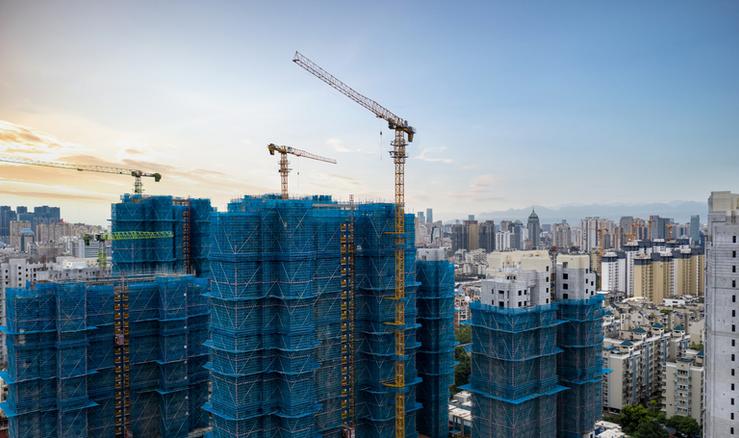The News
China’s leaders pledged to step up measures to revive the country’s flagging economy but stopped short of issuing a stimulus package, at a two-day meeting of top Communist Party officials designed to set targets for 2024.
State media acknowledged the “difficulties and challenges” facing the world’s second-biggest economy, which is grappling with weak demand, a deepening housing crisis, and widespread youth unemployment.
At the President Xi Jinping-led meeting, officials agreed on policies to boost domestic demand and expand high-level foreign investment, but the lack of forceful stimulus measures will disappoint investors, Bloomberg reports.
SIGNALS
Can China’s GDP grow at the rate it needs?
Beijing has stated its desire to double GDP by 2035 relative to 2020 levels — meaning its economy must grow by at least 4.8% a year, the SCMP writes. But with China still struggling to recover from its pandemic-era policies — amid other problems such as local government debt and geopolitical tensions — many are skeptical that this can be achieved. Ratings agency Moody’s predicts economic growth will slow to 4% in 2024 and 2025. However, the Chinese economy grew a faster-than-expected 4.9% in the third quarter of 2023. And while no annual GDP target was disclosed at this week’s meeting, one prominent economist previously urged the government to aim for 4.5-5% to “prove Western detractors wrong and instill confidence.”
China’s disaffected youth pose a headache for Beijing
Faced with intense pressures to over-achieve in a brutally competitive workplace, a ‘lying flat’ protest movement has taken hold, with many disillusioned Chinese youth opting out of conventional work altogether. This has pushed domestic demand down and jobless numbers up. After the youth unemployment rate hit a record high of 21.3% in June, Beijing stopped publishing the monthly statistics altogether. State media laments that young people are “unwilling to engage in jobs that are lower than their expectations”, such as taking work in rural areas. With too-few jobs for the number of students graduating from China’s universities each year, scientific and technological innovation will be a matter of “survival”, the state-run China Daily notes. This is likely to include an emphasis on artificial intelligence, where a recent key copyright ruling was seen as pushing a decisively pro-business stance.
The real estate crisis isn’t going anywhere
What was previously seen as a “slow-motion financial crisis” in China’s vast real estate and construction sector — which accounts for about a quarter of the country’s economy — is unfolding at rapid speed, the FT reports. Falling property prices in cities across China have led to many developers, such as the behemoth Evergrande, defaulting, in some cases on billions of dollars in debt. In this week’s meeting, party leaders again emphasized the construction of social housing, but failed to prescribe any new remedies for the ailing property sector. “The measures sound rather traditional and nothing much was very creative,” China economist Jacqueline Rong told Bloomberg.



